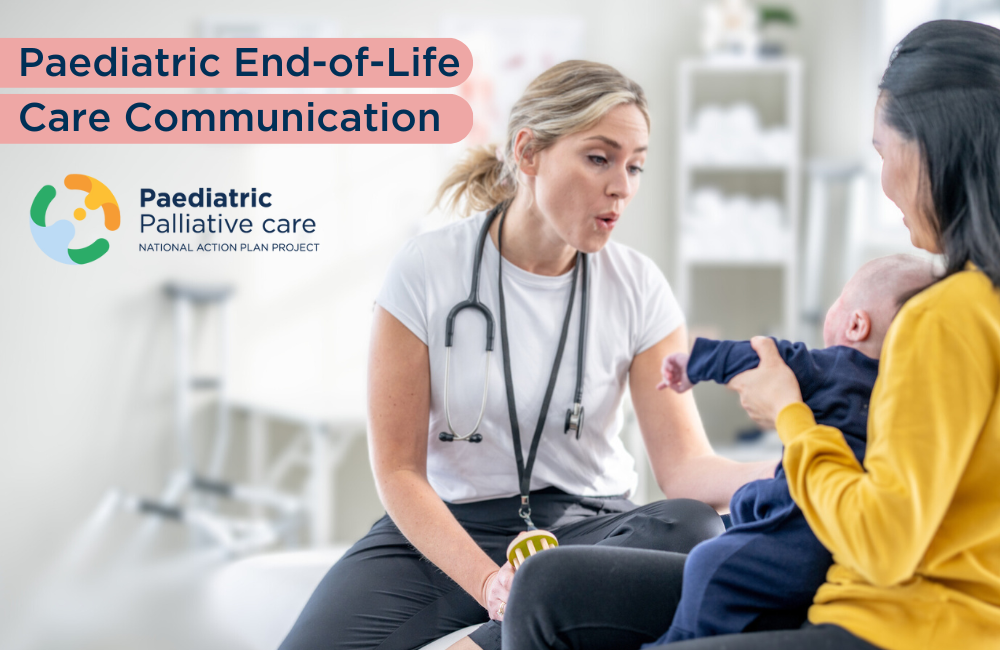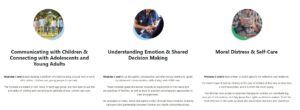New training to grow communication skills for paediatric palliative care
Thursday, March 07, 2024

A passionate group of bereaved parents and health professionals have come together to create a self-guided, eLearning program to support better communication at the end-of-life in paediatrics.
The Paediatric End-of-Life Care Communication modules are available free via the new Paediatric Palliative Care Education Hub and have been written for health care professionals who provide varied levels of care.
Each of the six modules takes no longer than two hours to complete and will take participants on an interactive journey through a range of themes:
Register and start learning HERE.

“At the heart of the training are the real-life experiences of the amazing families who have contributed to and inspired the Paediatric Palliative Care National Action Plan,” says Senior Clinical Project Officer, Palliative Care Australia (PCA), Sara Fleming.
“Through the development of the Action Plan we heard loud and clear that health professionals needed and wanted improved communication skills when caring for children, and young people with life limiting illness.
“Bereaved parents co-designed this course with us sharing their experiences and wisdom – speaking into a future where our communication is better.”
With funding from the Australian Government Department of Health and Aged Care the Paediatric End-of-Life Care Communication modules have been led in development by:
With additional input from a wider sector of parents, clinicians, specialty groups and clinicians as contributors and editors of module content.
“Make no mistake about it, death and dying is tough to talk about – especially when children, adolescents, and young adults are involved, and we address that as part of the training,” Ms Fleming says.
“Having these conversations is a skill that comes with time, experience and an open mind and heart – this new Paediatric End-of-Life Care Communication education will give doctors, nurses, and allied health professionals a solid foundation to grow and learn from.”
All six modules are based around self-directed learning and journal led reflection and are not formally assessed. They contain video interviews with families, young people, researchers and clinicians as well as interactive infographics, latest literature and resources and case studies. Participants can download a Record of Participation for their professional development portfolios upon completion.
Register and start learning HERE.
“This has been a real passion project for all involved, both families and health care professionals, and we thank them for their courage, wisdom, and humanity in sharing their stories and learnings,” Ms Fleming says.
Select where you would like to share this article
Close WindowWe recognise and acknowledge those who are working through Sorry Business, Sad News, grief and bereavement and offer our condolences and support.
Aboriginal and Torres Strait Islander peoples are advised that this website may contain images, videos and voices of people who have passed on. Some of the content and topics covered might also cause distress. You are welcome here, and we want you to feel safe and take care.
If you find that you need support please reach out to 13YARN on 13 92 76, Grief Australia, Grief Line on 1300 845 745, or Lifeline on 13 11 14.
Palliative Care Australia is located in Canberra. We acknowledge the traditional custodians of the surrounding land and waters, the Ngunnawal and Ngambri Peoples and pay our respects to Elders past and present. We extend that same respect and acknowledge the continuing cultures and contribution of Aboriginal and Torres Strait Islander Peoples across Australia.
Close